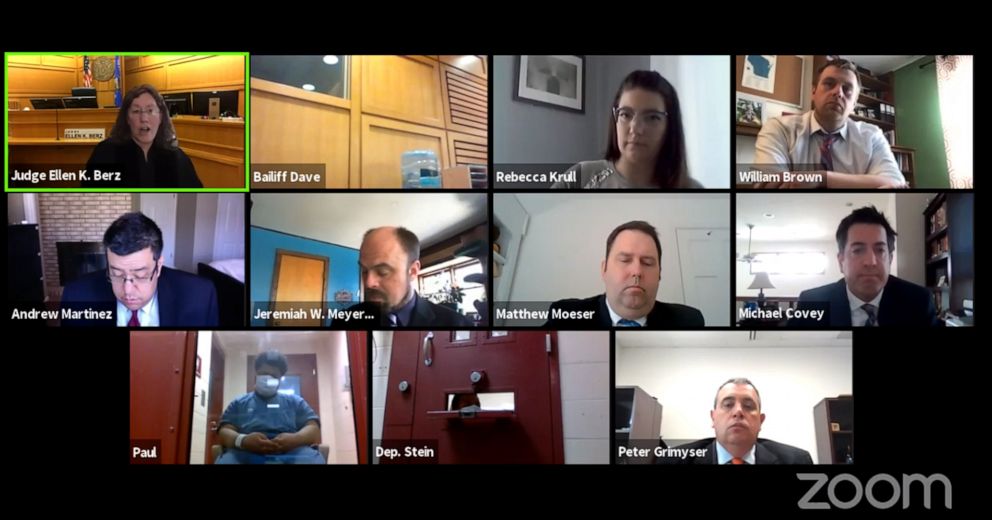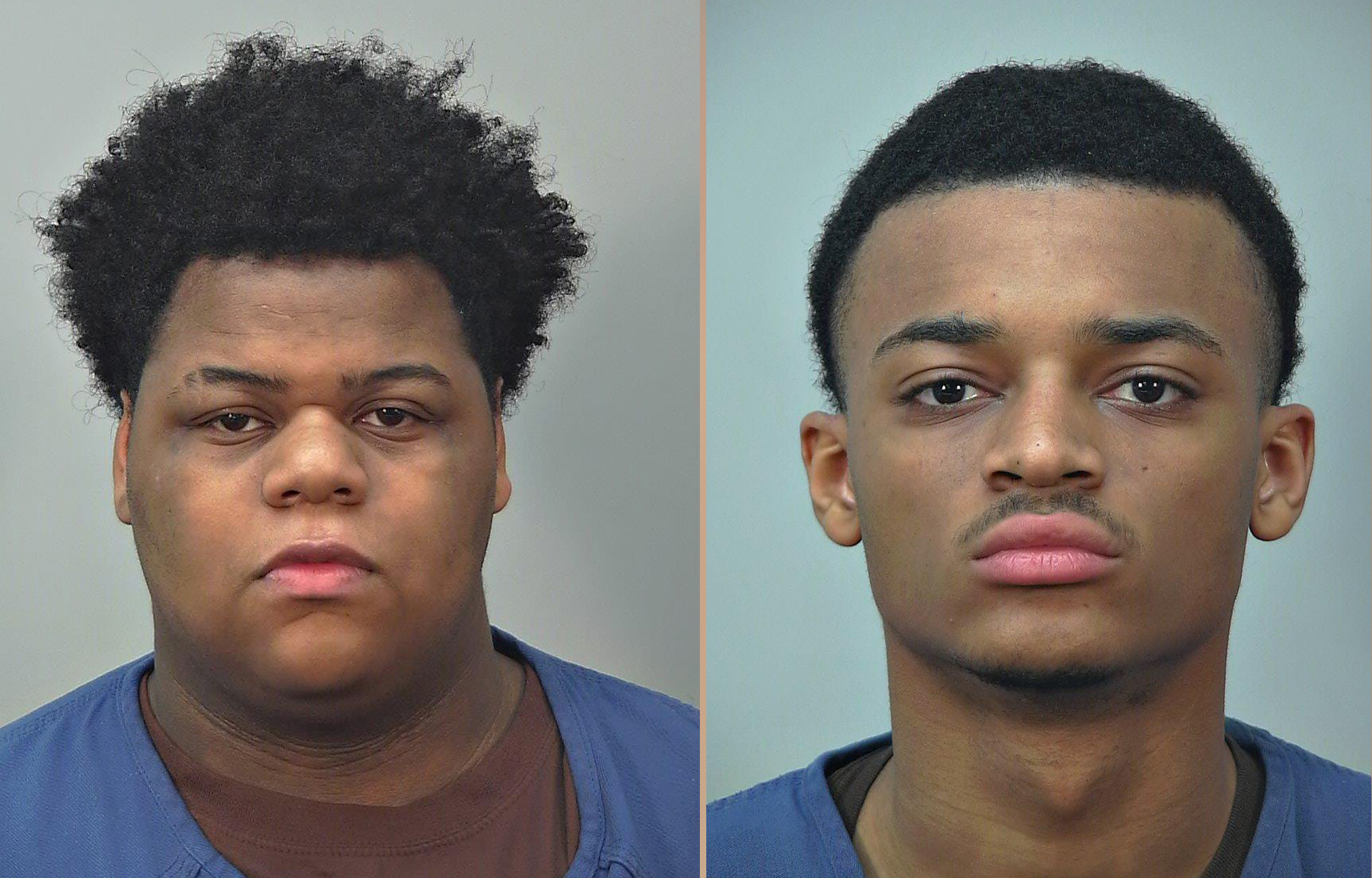Wisconsin judge greenlights double homicide charges for 2 teenage suspects
If convicted, the 18-year-olds face the rest of their life behind bars.
A Wisconsin judge ruled that law enforcement officials have enough evidence to proceed with the case of two 18-year-olds charged with the execution-style murder of a married couple.
After a preliminary hearing in Dane County Circuit Court via video teleconference on Thursday, prosecutors have proven there is sufficient probable cause to charge Khari Sanford and Ali'Jah Larrue for the first-degree murders of Dr. Beth Potter and Robin Carre.
Sanford and Larrue were present for the court appearance from Dane County Public Safety Jail and in separate cells while wearing face masks. Dane County Circuit Court Judge Ellen K. Berz entered not-guilty pleas on their behalf after their arraignment.
Sanford is the boyfriend of the murdered couple's adopted daughter Miriam "Mimi" Potter Carre. Prior to the murders, Potter told friends she moved her daughter and Sanford out of their home and into an Airbnb because they weren't abiding by COVID-19 social distancing rules and were putting her health at risk, according to the police report.

During the early morning of March 31, two joggers found the bodies of Potter and Carre lying off the roadway in the University of Wisconsin Arboretum and covered in blood.
Carre, an education coach, was pronounced dead at the scene with a bullet wound to the head. Potter, a doctor at the University of Wisconsin Hospital and Clinics, survived for an hour at a nearby hospital before she died, police said.
University of Wisconsin-Madison Police Detective Peter Grimyser said at the hearing that Potter did not identify who committed the crime before her death, but Sanford made an admission.
Larrue was arrested after Sanford allegedly named him as an accomplice, according to the police report.
Larrue told police he overheard Sanford and Potter Carre talking in ceramics class about getting money from her parents who are "rich," according to the police report. Potter Carre has not been named as a suspect.
Forensic analysis of Larrue's cellphone placed him in proximity of the crime scene, police said.
"Is there anything in your investigation that indicated that Mr. Larrue was the shooter?" asked Larrue's attorney, Michael Covey.
"No," Grimyser responded.
In fact, there's no evidence that Larrue knew Carre and Potter, had an animosity towards or even touched them, according to Covey.

"The key part to this case is they are relying on the GPS data that doesn't put him [Larrue] in the crime scene, it just puts him the approximate area," said Covey. "It's logic that Larrue was hiding or trying not to be involved or telling Sanford to stop what he was doing."
Prosecutor Matthew Moeser charged that if Larrue was present for the crime, it didn't take him off the hook, either.
"He can be an aiding and abetting. There is no evidence that he tried to stop the murders or was afraid of anything," said Moerser.
Sanford's attorney, Andrew Martinez, argued that there's no evidence his client was at the crime scene and his alleged admission is not credible.
Nonetheless, the judge ruled that "there's enough evidence that probable cause has been committed in this case."
If convicted, Larrue and Sanford face life in prison.




